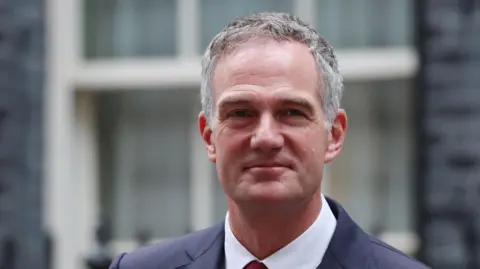Broadcom Inc. ((AVGO)) has held its Q3 earnings call. Read on for the main highlights of the call.
Elevate Your Investing Strategy:
- Take advantage of TipRanks Premium at 50% off! Unlock powerful investing tools, advanced data, and expert analyst insights to help you invest with confidence.
The recent earnings call from Broadcom Inc. showcased a strong performance in AI semiconductors and infrastructure software, with record revenues and a solid backlog. Despite some challenges in the non-AI semiconductor segment and pressures on gross margins due to product mix, the overall sentiment was optimistic. The positive highlights significantly outweighed the lowlights, indicating a promising outlook for future growth, particularly in AI.
Record-Breaking Revenue and Growth
Broadcom Inc. reported a record total revenue of $16 billion, marking a 22% increase year-on-year. This impressive growth was primarily driven by the strong performance in AI semiconductors and the expansion of VMware. The company’s ability to achieve such significant revenue growth underscores its strategic focus on high-growth areas.
AI Semiconductor Growth
The AI semiconductor segment was a standout performer, generating $5.2 billion in revenue, which represents a 63% increase year-on-year. This marks the 10th consecutive quarter of robust growth in this segment. Looking ahead, Broadcom forecasts AI semiconductor revenue to reach approximately $6.2 billion in Q4, up 66% year-on-year, highlighting the company’s leadership in this rapidly expanding market.
Infrastructure Software Segment Performance
Broadcom’s infrastructure software segment also delivered strong results, with revenue reaching $6.8 billion, up 17% year-on-year. The total contract value booked during Q3 was $8.4 billion, reflecting the company’s strength in securing long-term commitments from customers.
Strong Backlog and Bookings
The company’s consolidated backlog reached a record $110 billion, with bookings showing robust growth, particularly in AI. This substantial backlog provides a solid foundation for future revenue and demonstrates strong customer demand across Broadcom’s product lines.
CEO Tenure Extension
In a significant leadership development, Broadcom’s board and CEO Hock Tan have agreed that he will continue as the CEO through at least 2030. This extension provides stability and continuity in leadership, which is crucial for executing the company’s long-term strategic vision.
Non-AI Semiconductor Demand
While the AI segment thrived, the non-AI semiconductor demand remained sluggish, with Q3 revenue of $4 billion flat sequentially. Enterprise networking and service storage experienced sequential declines, with only broadband showing strong growth. This highlights the challenges Broadcom faces in certain segments of its semiconductor business.
Gross Margin Impact
Broadcom anticipates a slight decline in its Q4 consolidated gross margin, down approximately 70 basis points sequentially. This is primarily due to a higher mix of XPUs and wireless revenue, which impacts the overall product mix and margin structure.
Forward-Looking Guidance
During the earnings call, Broadcom provided robust guidance for the upcoming quarter and fiscal year. The company forecasts Q4 2025 consolidated revenue of $17.4 billion, up 24% year-on-year, with AI semiconductor revenue expected to reach $6.2 billion, up 66% year-on-year. Infrastructure software revenue is projected at $6.7 billion, up 15% year-on-year. Broadcom anticipates an adjusted EBITDA margin of 67% for Q4, with continued growth in the AI business and the addition of a significant fourth customer expected to positively impact fiscal 2026.
In summary, Broadcom Inc.’s latest earnings call highlighted a strong performance in AI semiconductors and infrastructure software, with record revenues and a promising outlook for future growth. Despite some challenges in non-AI segments and margin pressures, the overall sentiment was optimistic, driven by significant achievements and robust forward-looking guidance.
Disclaimer & DisclosureReport an Issue
























